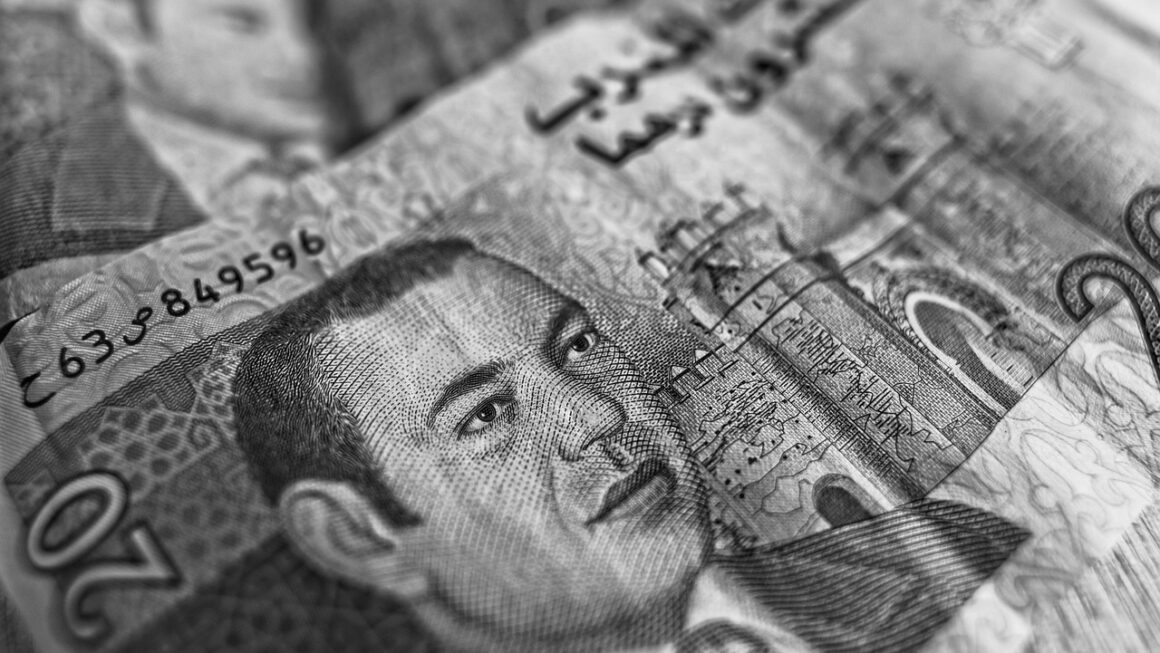Navigating the complexities of personal finance can feel overwhelming. From budgeting and saving to investing and debt management, achieving financial stability requires knowledge, discipline, and a proactive approach. This guide is designed to provide you with the tools and insights necessary to cultivate financial wellness, empowering you to take control of your financial future and achieve your long-term goals.
Understanding Financial Wellness
What is Financial Wellness?
Financial wellness is more than just being wealthy. It’s a holistic state of being where you feel secure and confident in your ability to manage your finances, both now and in the future. It encompasses your understanding of your financial situation, your ability to handle financial shocks, and your progress towards achieving your financial goals. Think of it as a journey towards financial peace of mind.
- Beyond Numbers: Financial wellness considers your feelings, attitudes, and behaviors related to money.
- Long-Term Perspective: It’s about planning for retirement and unexpected expenses, not just surviving paycheck to paycheck.
- Personalized Definition: What financial wellness looks like for one person may be different for another, depending on their individual goals and circumstances. For example, someone debt-free with a small emergency fund might feel financially well, while another person with a high income but significant debt might not.
Why is Financial Wellness Important?
Financial well-being is directly linked to overall well-being. Poor financial health can lead to stress, anxiety, relationship problems, and even physical health issues. Prioritizing your financial wellness can lead to numerous benefits:
- Reduced Stress: Knowing you have a plan and the resources to handle unexpected events significantly reduces stress.
- Improved Mental Health: Financial security contributes to a greater sense of control and stability.
- Stronger Relationships: Financial disagreements are a major source of conflict in relationships. Open communication and shared financial goals can strengthen bonds.
- Increased Productivity: When you’re not worried about money, you can focus on your work and personal life more effectively.
- Greater Opportunities: Financial stability opens doors to opportunities like starting a business, traveling, or pursuing further education. According to a recent study by PwC, employees who report being stressed about their finances are more than twice as likely to be looking for a new job.
Creating a Budget and Tracking Expenses
Developing a Realistic Budget
A budget is the foundation of financial wellness. It helps you understand where your money is going and identify areas where you can save. Don’t think of it as a restriction; think of it as a roadmap to achieving your financial goals.
- Identify Your Income: Calculate your net income (after taxes and deductions) from all sources.
- Track Your Expenses: For a month, meticulously track every dollar you spend. Use a budgeting app, spreadsheet, or even a notebook.
- Categorize Your Spending: Group your expenses into categories like housing, transportation, food, entertainment, and debt repayment.
- Analyze Your Spending: Review your expense categories and identify areas where you can cut back.
- Create a Budget: Allocate your income to different expense categories based on your priorities. The 50/30/20 rule (50% needs, 30% wants, 20% savings and debt repayment) can be a useful starting point.
- Review and Adjust: Your budget should be a living document that you review and adjust regularly as your income and expenses change.
- Example: Let’s say your net monthly income is $4,000. Using the 50/30/20 rule, you would allocate:
- $2,000 to needs (housing, utilities, transportation, groceries)
- $1,200 to wants (dining out, entertainment, hobbies)
- $800 to savings and debt repayment
Utilizing Budgeting Tools and Apps
Numerous budgeting tools and apps can simplify the process of tracking expenses and managing your budget. Some popular options include:
- Mint: A free app that automatically tracks your spending and provides personalized insights.
- YNAB (You Need a Budget): A paid app that uses the envelope budgeting method to help you allocate every dollar.
- Personal Capital: A free app that offers budgeting tools, investment tracking, and retirement planning features.
- Spreadsheets: A simple and customizable option for creating your own budget. Google Sheets and Microsoft Excel are widely used.
- Old Fashioned Notebook: Sometimes a paper notebook and pen is the best way for someone to stay on track!
The Importance of Emergency Funds
An emergency fund is crucial for protecting your financial well-being. It provides a safety net to cover unexpected expenses like medical bills, car repairs, or job loss. Aim to save at least 3-6 months’ worth of living expenses in a readily accessible account.
- Start Small: Even small contributions to an emergency fund can make a big difference. Automate a weekly or monthly transfer to your savings account.
- Separate Account: Keep your emergency fund in a separate account from your checking account to avoid the temptation to spend it.
- High-Yield Savings Account: Consider putting your emergency fund in a high-yield savings account to earn interest on your savings.
Managing Debt Effectively
Understanding Different Types of Debt
Not all debt is created equal. Understanding the different types of debt and their associated interest rates is essential for prioritizing repayment.
- Good Debt: Debt that has the potential to increase your wealth, such as student loans for a valuable degree or a mortgage for a home.
- Bad Debt: Debt that is used to purchase non-essential items or services and often comes with high interest rates, such as credit card debt.
Strategies for Debt Reduction
Developing a debt repayment strategy can help you pay off debt faster and save money on interest.
- Debt Snowball: Pay off your smallest debt first, regardless of the interest rate. This provides a quick win and motivates you to keep going.
- Debt Avalanche: Pay off the debt with the highest interest rate first. This will save you the most money in the long run.
- Balance Transfers: Transfer high-interest credit card balances to a card with a lower interest rate.
- Debt Consolidation Loans: Combine multiple debts into a single loan with a lower interest rate.
- Negotiate with Creditors: Contact your creditors and try to negotiate lower interest rates or payment plans.
Avoiding Future Debt Accumulation
The best way to manage debt is to avoid accumulating it in the first place.
- Live Within Your Means: Spend less than you earn.
- Use Credit Cards Responsibly: Pay off your credit card balance in full each month to avoid interest charges.
- Avoid Impulse Purchases: Think carefully before making any large purchases.
- Create a Savings Plan: Save for large purchases instead of putting them on credit.
Investing for the Future
The Importance of Investing Early
Investing is crucial for building long-term wealth and achieving your financial goals. The earlier you start investing, the more time your money has to grow through the power of compounding.
- Compounding: Earning returns on your initial investment and on the accumulated interest or dividends. Albert Einstein reportedly called compound interest the “eighth wonder of the world.”
Different Investment Options
There are various investment options available, each with its own level of risk and potential return.
- Stocks: Represent ownership in a company. Stocks offer the potential for high returns but also carry a higher level of risk.
- Bonds: Represent loans to a government or corporation. Bonds are generally considered less risky than stocks but offer lower returns.
- Mutual Funds: A collection of stocks, bonds, or other assets managed by a professional fund manager. Mutual funds offer diversification and professional management.
- Exchange-Traded Funds (ETFs): Similar to mutual funds, but they trade on stock exchanges like individual stocks. ETFs often have lower expense ratios than mutual funds.
- Real Estate: Investing in property can provide rental income and appreciation potential.
- Retirement Accounts: Tax-advantaged accounts like 401(k)s and IRAs allow you to save for retirement while deferring or avoiding taxes.
Developing an Investment Strategy
Your investment strategy should be tailored to your individual goals, risk tolerance, and time horizon.
- Define Your Goals: What are you saving for? Retirement? A down payment on a house?
- Assess Your Risk Tolerance: How comfortable are you with the possibility of losing money?
- Determine Your Time Horizon: How long do you have until you need to access your investment funds?
- Diversify Your Portfolio: Spread your investments across different asset classes to reduce risk.
- Rebalance Regularly: Adjust your portfolio periodically to maintain your desired asset allocation. Consider seeking guidance from a financial advisor.
Protecting Your Financial Well-being
Insurance Coverage
Insurance is essential for protecting yourself and your family from financial hardship in the event of unexpected events.
- Health Insurance: Covers medical expenses.
- Life Insurance: Provides financial support to your beneficiaries in the event of your death.
- Disability Insurance: Replaces a portion of your income if you become disabled and unable to work.
- Homeowners/Renters Insurance: Protects your property from damage or loss.
- Auto Insurance: Covers damages and liability in the event of a car accident.
Estate Planning
Estate planning involves creating a plan for how your assets will be distributed after your death.
- Will: A legal document that specifies how you want your assets to be distributed.
- Trust: A legal arrangement that allows you to transfer assets to a trustee who manages them on behalf of beneficiaries.
- Power of Attorney: A legal document that authorizes someone to act on your behalf in financial or medical matters.
- Beneficiary Designations: Designate beneficiaries for your retirement accounts and life insurance policies.
Preventing Identity Theft and Fraud
Identity theft and fraud can have devastating financial consequences.
- Protect Your Personal Information: Be cautious about sharing your personal information online and offline.
- Monitor Your Credit Report: Check your credit report regularly for any unauthorized activity.
- Use Strong Passwords: Create strong, unique passwords for all of your online accounts.
- Be Wary of Scams: Be skeptical of unsolicited emails, phone calls, or text messages asking for your personal information.
- Secure Your Devices:* Install antivirus software and keep your devices updated with the latest security patches.
Conclusion
Financial wellness is a journey, not a destination. By taking proactive steps to understand your finances, create a budget, manage debt, invest wisely, and protect your assets, you can significantly improve your financial well-being and achieve your long-term goals. Remember to be patient, persistent, and adaptable as you navigate the ever-changing landscape of personal finance. Consulting with a qualified financial advisor can provide personalized guidance and support along the way. Start today to take control of your financial future!




